Are you missing multiple consecutive teeth?
Larsen Family Dental provides several restorative dentistry options to replace missing teeth, including dental bridges. A dental bridge is a oral appliance that dentists use to replace one or more consecutive teeth. At Larsen Family Dental, we can provide you with a dental bridge in Bountiful, UT to help restore the form, function, and beauty of your smile. We offer traditional fixed dental bridges and implant-supported bridges as a part of our restorative dentistry services to clients looking for tooth replacement options.
The Importance of Replacing Missing Teeth
If you are missing teeth, it is vital that you replace them. A complete set of healthy teeth will help maintain oral health, functionality, and aesthetics.
When teeth are lost, it can lead to many dental issues, including shifting of the adjacent teeth, changes in bite, and even loss of bone in the jaw. These changes will affect how your smile appears, make it difficult to chew correctly, and make speaking clearly challenging. Tooth loss is directly related to a decrease in self-confidence for many individuals.
We can present you with many options for replacing your teeth. A dental bridge is a practical solution to treat tooth loss. This restorative prosthesis will help prevent tooth shifting, redistribute the forces in your bite properly, and complete your smile. A bridge can improve your quality of life by restoring functionality so you can eat and speak properly.
If you choose an implant-supported bridge, it can preserve your jawbone and help maintain the integrity of your facial structure.
Choosing the right option for your dental health and cosmetic goals is important for a successful outcome. Dr. Larsen can provide the experienced, personalized care you need to develop a treatment plan for restoring your smile and enjoying your best quality of life.

Dental Bridges in Bountiful, UT
Several types of dental bridges are available, and the one you will need depends on your particular case. Each type will effectively replace your teeth, returning function and aesthetics. No matter which type of dental bridge you get, we can color-match it to blend in with your surrounding teeth. We offer traditional, cantilever, Maryland, and implant-supported bridges.
Traditional Bridge
The most common type of bridge is a traditional bridge. This type of bridge uses dental crowns on both sides of the bridgework and a pontic (the false tooth) between them. It is an excellent tooth replacement choice if you are missing one or several consecutive teeth.
However, a traditional bridge requires healthy, natural teeth on sides of the gap. These teeth require preparation which include significantly reducing them in size. Ideally, it is best to permanently alter teeth that are perfectly healthy. This is necessary step to create room for the crown portion of the bridgework. Your dentist will cement the crowns to the prepared teeth for a durable replacement solution.
Cantilever Bridge
A cantilever bridge is used when only healthy teeth are available on one side of the gap. It is similar to a traditional bridge, but the bridgework is only secured to one tooth on one side of the gap. Because of this, less tooth preparation is involved in the process.
Your dentist will recommend a cantilever bridge when teeth are only available on one side of the gap. However this is not best tooth replacement solution since we can only secure one side of the bridge, making it less durable.
Dental Bridge or Dental Implant: what to consider
Dental implants can offer certain key benefits for your dental health when replacing lost teeth. If you are replacing a single missing tooth, the choice between a bridge and an implant should take certain factors into consideration:
- The health of existing teeth: When placing an implant, there is no need to compromise neighboring teeth to anchor the restoration. A traditional bridge will require the two adjacent teeth to be reduced to accommodate it.
- Stability of your smile: The implant post serves as a prosthetic tooth root which has also been lost, helping to support continued bone health in the jaw. Preventing bone loss will help keep the natural shape of your face.
- Normal chewing and confident speech: The permanent and stable dental implant will give you the ability and confidence to enjoy your favorite foods and speak clearly.
Dental Bridge FAQs
Here are some common questions we are asked regarding our dental bridge restorations. Please contact our office if you have further questions or concerns. Our goal is provide you with knowledge about bridges to help you make the best decision for your oral health and quality-of-life.
What are the benefits of dental bridges?
Dental bridges improve the appearance of your smile while also offering you the functionality of a restored smile. Restoring your chewing and speaking patterns, maintaining the structure of your jaw, and relieving muscle strain around your mouth are also key benefits of dental bridges. This prevents further issues from occurring such as chronic jaw pain or teeth shifting.
Do dental bridges require any extra care?
You will need to continue practicing good oral hygiene habits after you get your dental bridge. Dr. Larsen will show you how to clean around your dental bridge so that you keep it clean and free of bacteria buildup. Cleaning around and underneath your dental bridge is crucial in maintaining its longevity.
How will I know if a dental bridge is right for me?
As a holistic dentist in Bountiful, UT, Dr. Larsen will provide a thorough consultation of your smile and present you with all of your tooth replacement options. If you are struggling to choose between dental bridges and dental implants, talk to Dr. Larsen for a better understanding of what each restoration will do for your smile.
How long do dental bridges last?
Traditional dental bridges that are supported by natural teeth last from 5-15 years. Implant-supported bridges can last much longer. However, the length of time they last is determined by how well you care for them.
Can I eat normally with a dental bridge?
If the bridge is placed properly, you should be able to eat normally. Implant-supported bridges should feel just like your natural teeth. Your bridge does take some getting used to at first. It should start to feel normal after about two weeks.
How many teeth can a dental bridge replace?
A bridge can replace one-four teeth. In rare cases, more than four may be used on a dental bridge. Typically, a bridge is used to replace one or two consecutive teeth.
If you are considering your tooth replacement options, please schedule an appointment with Dr. Larsen online or call us today at 801.228.0155. Our team can provide you with a variety of treatment plans to meet your needs. You deserve to feel confident with your smile and enjoy the functionality of a full set of teeth.
